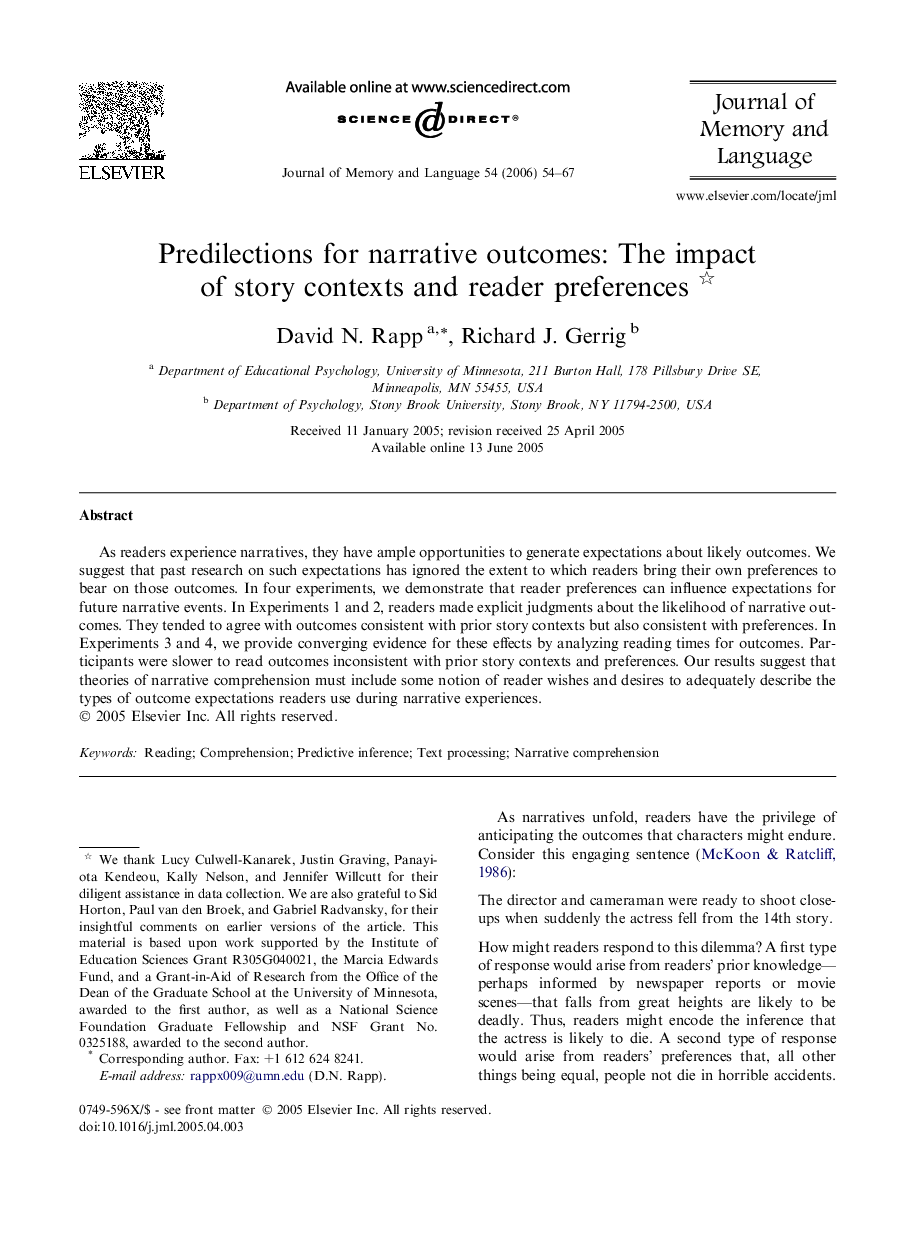| Article ID | Journal | Published Year | Pages | File Type |
|---|---|---|---|---|
| 932387 | Journal of Memory and Language | 2006 | 14 Pages |
As readers experience narratives, they have ample opportunities to generate expectations about likely outcomes. We suggest that past research on such expectations has ignored the extent to which readers bring their own preferences to bear on those outcomes. In four experiments, we demonstrate that reader preferences can influence expectations for future narrative events. In Experiments 1 and 2, readers made explicit judgments about the likelihood of narrative outcomes. They tended to agree with outcomes consistent with prior story contexts but also consistent with preferences. In Experiments 3 and 4, we provide converging evidence for these effects by analyzing reading times for outcomes. Participants were slower to read outcomes inconsistent with prior story contexts and preferences. Our results suggest that theories of narrative comprehension must include some notion of reader wishes and desires to adequately describe the types of outcome expectations readers use during narrative experiences.
